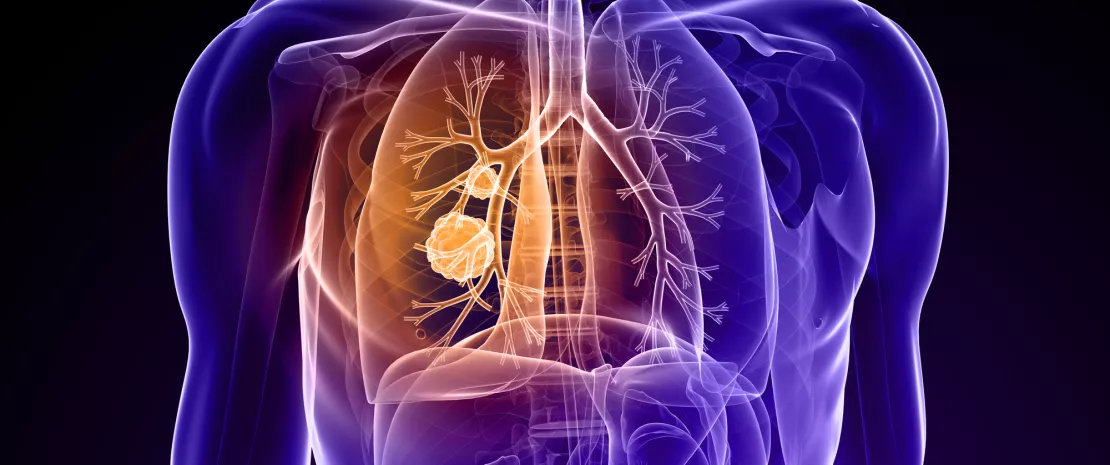Lung cancer: major influence of the lung microbiota
According to an American team, the progression of tumor cells in pulmonary adenocarcinoma is likely to be fueled by dysbiosis of the pulmonary microbiota via an impairment of the local immune response. New anti-cancer treatments could be directly inspired by these results.
Lay public section
Find here your dedicated section
Sources
This article is based on scientific information

About this article
Lung cancer is the most lethal cancer in the world, and pulmonary adenocarcinoma (non-small cell lung cancer) is its most common form. As 70 % of patients suffer from infectious pulmonary complications of bacterial origin, a factor that worsens their prognosis, the role of the pulmonary microbiota in the progression of the disease is a fast-growing research avenue.
Tumor growth and the intestinal microbiota
In order to evaluate the functional importance of commensal intestinal bacteria in the occurrence and progression of the tumor, two lines of genetically modified mice in which a pulmonary adenocarcinoma had been induced were used: one group was composed of mice depleted of all microorganisms (“germ-free”, or GF); the second of mice free from specific pathogenic organisms (“Specific Pathogen Free”, or SPF). 8 to 15 weeks after induction of the tumor, the GF mice seemed protected: slowed tumor growth, fewer high-grade lesions. In addition, quadruple antibiotic therapy (ampicillin, neomycin, metronidazole, vancomycin) administered to SPF mice between 2 and 6.5 weeks post-induction stopped the tumor growth, at both early and advanced stages, and reduced the number of high-grade lesions.
Dysbiosis and local infections boost the cancer
The researchers then characterized the pulmonary microbiota. In mice that developed tumors, the pulmonary flora was more abundant and less diversified than that of healthy mice (overabundance of Herbaspirillum and Sphingomonadaceae). In the mice programmed to develop adenocarcinoma, tumor growth was accelerated by the transplantation of bacteria over-represented in the pulmonary microbiota of tumor-carrying mice. More detailed experiments in animals and humans resulted in the following hypothesis: pulmonary inflammation, associated with the adenocarcinoma and triggered by the local microbiota, is likely to contribute to the activation of the local immune response implemented by a specific category of T cells, called γδ T cells. These cells are highly represented in tumor tissues and are thought to differentiate into γδ T cells producing (sidenote: Pro-inflammatory mediators IL-22 and amphiregulin ) , which would induce infiltration of tumor-promoting neutrophils. Pulmonary infections would fuel this harmful process by maintaining local dysbiosis. Inactivation of these T cells or their mediators therefore appears as a potential therapeutic target for the future.





